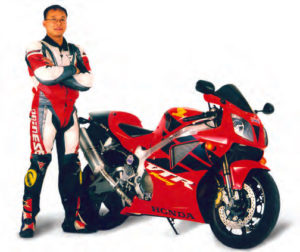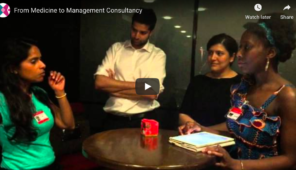The Doctor with the Ultimate Portfolio Career
We have the pleasure of speaking with the multifaceted Dr. Meng Aw-Yong - finding out what kind of a career he's had so far...and explore how he developed the ultimate portfolio career.

A portfolio career is the panacea for burnout.

Q. You seem to represent the epitome of a portfolio career. What does it mean to you as a doctor and what do you believe are the benefits of holding such a varied career? How long did you spend developing your career as it is today?
A. As you’re aware, I have a relatively wide range in my portfolio including –
- Working in Emergency Medicine,
- Medical Director and also Forensic Medical Examiner for the Met Police,
- Providing expert reports for various regulatory bodies,
- CQC specialist advisor,
- A National Medical Adviser for St John Ambulance,
- A Crowd doctor at QPR football club,
- A medical judge on the First Tier Tribunal Judicial Allocations Committee,
- A member of the Independent Advisory Panel on deaths in custody (Ministry of Justice),
- A Fitness to Practice Assessor and a Suitable Person for the GMC,
- A Hon Lecturer for Queen Mary University of London and Specialty editor (medicine) for the Medicine, Science and Law Journal and,
- An examiner for the FFLM membership exam.
Having a portfolio career used to depend on your personality type but nowadays with changes to the NHS, a portfolio career is about preventing burnout i.e. sustainability for a speciality.
For me, it makes the whole week bearable and provides varied interest; it makes A&E (EM) more bearable as working full time in the pressures nowadays may have meant a different career choice.
Meeting and talking with serial killers, terrorists and drug dealers is not the usual part of a doctor’s social circle. Also, it reinvigorates me as you realise how much the public and other civil sectors value our contributions to society.
However, I was fortunate to come into the forensic medicine when few hospital doctors were and could bring about my experience. I took many of the lessons that I learnt in the NHS into forensic medicine.
Q. What are the challenges? Any risk of burnout?
A. The initial barrier was being considered by colleagues as a failure when you don’t pursue a consultant career. It is a big step moving away from the traditional medical hierarchy (less so for GPs).
In the private sector such as sports, forensic and event medicine you are expected to come trained, and that willingness to commit an initial expense in time and money will reap rewards many years later.
Q. How did you first get involved with the Met Police? What kind of doctors work with the Met Police and what are their roles / responsibilities? Is there a flexible time commitment? What kind of training is involved?
A. It was serendipity that led me to this as I was taking time out for the FRCS exam. I had got involved in motor racing doctoring from my motorcycling passions.
Furthermore, I asked to shadow my friend’s father who was a police surgeon. Following this I decided that I wanted to become a forensic medical examiner and continue in emergency medicine as well.
Working as a Forensic Medical Examiner for the Metropolitan Police Service is hugely flexible as they operate on a zero hours contract. You will be a self-employed contractor and can work as little or as much as you wish being paid on an hourly sessional basis (6 or 12 hour shifts 0630-1230, 1230-1830 etc).
You may be asked to attend police custodies to see detainees to prescribe/administer their usual medications, take blood or conduct assessments for drink/drug drive cases, review for a detainee’s fitness for interview, take intimate samples for alleged rape cases or record injuries.
Q. How have doctors careers changed over the years and why do you think these changes have occurred?
Many doctors are now looking to a work-life balance, as the challenges in the NHS make it less fulfilling. As government auditors focus on delivering numbers rather than quality and reducing their budgets (KPIs – 4-hour targets), they look for cheap and quick alternatives such as ENP, nurse consultants.
The constant attacks on doctors on all aspects, including pay, the diminution of respect, public demand, gradual replacement by nurse consultants/ENPs without the training, and responsibility that we have to go through means that job satisfaction is becoming lessened.
Q. Could you recommend any changes to career pathways for doctors that you feel would be beneficial in addressing attrition rates?
A. Part-time working in hospital careers should be promoted as a positive career move; GPs have this option already.
Q. What advice would you give to doctors seeking out a portfolio career?
A. Find your USP and it is even better if it links with medicine, for example: a hobby horse riding with event medicine, sports with club doctoring, or photograph with travel medicine.
__________________________________________________________________________
For more information about designing a portfolio career, check out latest webinar on Portfolio Careers, as well as the panel discussion from our ACW Event 2016.
Medic Footprints
Latest posts by Medic Footprints (see all)
- Alternative Careers for Doctors during COVID-19 - 5th April 2020
- Top 9 Coronavirus memes so far - 5th April 2020
- Portfolio Careers for Doctors 101: Utilising Key Strategies to Support your Life Goals - 30th January 2020

